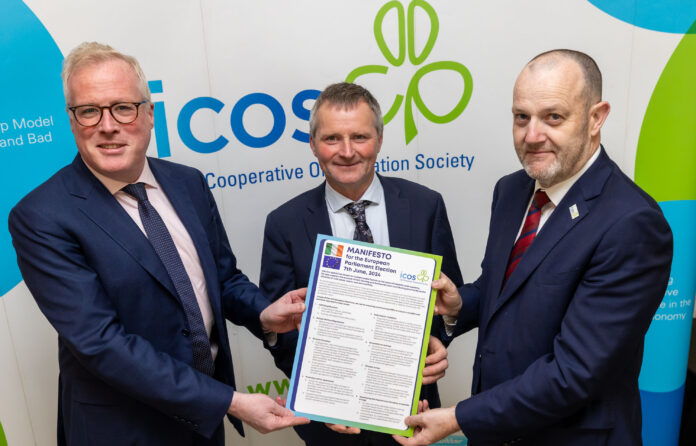
The pressing issues facing farmers in a year marked by significant challenges, including poor milk prices, high input costs, adverse weather and negative public perceptions, were the primary items addressed by ICOS president, Edward Carr, at the 129th AGM of the Irish Co-operative Organisation Society (ICOS) held last Friday in Portlaoise.
Attended by Ireland’s co-operative industry leaders, Carr also stressed the critical need for clearer and more decisive action from the government regarding the newly published Biomethane Strategy.
“Farmers are experiencing increasingly difficult circumstances,” said Mr. Carr. “They've faced a perfect storm of poor milk prices, stubbornly high input prices, locked-in high overhead costs, and appalling weather. On top of this, the public narrative often treats food producers as if they’re some kind of environmental criminals”.
“People need to wake up to this fact; stop stigmatising and instead support farmers to achieve even more in the interests of food security and necessary climate action, which we 100% acknowledge as a priority for our sector and for Ireland.”
Edward Carr emphasised the substantial progress that farmers have made, stating that they needed “to continue showing leadership and guide our organisations and members through even more challenging changes in the coming years”.
“Our industry needs a sustainable dairy calf-to-beef system that meets customer and stakeholder expectations while protecting beef farmers’ livelihoods. Our precious tillage sector needs protection as we all rely on their straw and grain.
"Embracing the bio-economy is critical to decarbonise our supply chains and maximise waste value. Furthermore, we must attract new blood into farming, into co-op membership and leadership to compete in a booming economy.
Government must step up
Carr emphasised the urgency of protecting the rural economy and called on the government to step up.
“The government and politicians must step up. They must ensure fair rules for water quality improvements, provide adequate funding for slurry storage capacity, fully fund the ASSAP programme, and properly finance the new biomethane strategy.
“Government agencies such as the EPA need to clearly acknowledge the science associated with each of our improvement measures, including the reasonable timeframe over which they could be expected to deliver results.”
Biomethane Strategy
Addressing the recently published Biomethane Strategy, Carr called for “more clarity”, describing the current €40 million capital funding as “woefully inadequate”.
“Clear guidelines are essential to create certainty for investment decisions and to engage farmers and co-operatives effectively. We see opportunities for additional income streams for farmers and rural regions; for example integrating slurry storage and nutrient management solutions, and kick-starting Ireland’s bioeconomy at a commercial scale.
“We welcome the reference to ‘Project Development Assistance’ for co-operative projects and insist that co-operatives must be fully involved in deploying an agri-led AD strategy. We are eager to participate in developing the industry charter and consulting with the Department on how Project Development Assistance can work for co-operatives. However, we urgently need clarity around capital grants, the RHO, and other critical definitions and particularly sustainability.”
Call to Action
“In summary, this is the number one priority for all of us over the coming months,” Carr concluded. “Government needs to robustly defend our grass-based production system and bring substantial financial support to the table. The EU funding rules cannot be an excuse for inaction. We need innovative solutions and unwavering commitment to protect our industry. Time is short, and we must act decisively. Let’s not waste it.”







